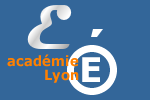Changes in CNRM-CM scripts with V5.4
A MUST READ ! What’s new from may 2012 with V5.4 of CNRM-CM scripts.
Beginning in may 2012 and version 5.4, CNRM-CM introduces new features and organizes its scripts differently
Besides scientific improvement of the models, the CNRM-CM framework underwent a number of changes from may 2012. We here call CNRM-CM framework, or ’CM’, the set of scripts which helps design and run an experiment, and organize and post-process its ouputs. Changes are :
- the scripts and tools of the framework, are now grouped in a reference directory on tori and yuki :
~mrgu548/cnrm-cm, with version directories, which includes a version of tools ’relan’ and ’mtool’ which are consistent with the need of the main scripts ; subdirectory param provides useful examples of experiment parameter files ; first version as of today is V5.4 ; see ECLIS : the Environment for CLImate Simulations for details. - setting up your environment is largely simplified : you just have to source the most up-to-date version of script cm_setup (see directions), e.g. in your .profile ; moreover, when installing an experiment, CM will identify from the installation script’s path, which are the consistent path and tools to use for later stages (and will record it in the experiment configuration file) ; advanced users may fine tune theses aspects (see ECLIS : the Environment for CLImate Simulations) ;
- a change in experiment parameter files structure : they are still self executable files, but must now source the experiment installation script (rather than execute it) ; see examples in refdir/param ; you also have to set the experiment ID as an experiment parameter (EXPID)
- the version of mtool now used is v1.0.1 ; it changes the name of the directory used for submitting job steps ; you may still use script function ’cds’ to reach it, provided you invoke script cm_setup in your .profile. But it is esaier to use symbolic link ’steps’ in the experiment’s ’relance’ directory
- it is possible to have CNRM-CM run script execute some user-defined script commands, called plugins, at various stages of the experiment run ; this is further documented in ECLIS Plugins : tuning CNRM-CM to your needs ;
- using this feature, a number of Standard plugins are under design, which extend the use of CNRM-CM framework to common needs, e.g., running Aladin, running the CNRM-CCM chemical scheme, post-processing Arpege outputs to monthly means, or running in regional coupled mode over the Mediterranean ; .
- a check on forcing files is performed at experiment installation step, which ensures that those indicated in the experiment parameters file actually exist for the first year of the simulation
- cloning an experiment is possible, by sourcing the parameter file ; see example in reference directory in param/param_includer and param/param_included
- debugging is eased by symbolic links from the experiment directory
- steps links to Mtool directory where step jobs and their output are stored,
- ftdir links to the directory used for transfers to/from the archive machine, and
- rundir links to the experiment compute step working directory (if it is on WORKDIR ; i.e. if you have set KEEPTMP to 1)
- Arpege namelist update script can be tuned using param UPDNAMARP
- experiment parameter ARCHIVING, when set to ’DURING’ allows to launch the archiving step during next compute step, rather than before ; however, this complicates a lot the error recovery process ; it is not recommended to use this feature unless you have to feed dedicated processors with a continuous computation flow, and are ready to painful steps when something goes wrong
- experiment parameter RESTARTS_BUFFER_LENGTH allows to limit disk space used by restarts on $FTDIR
- the framework has been adapted and tested on IDRIS ’vargas’ host, which is a Regatta Power 6 architecture, and which is operated without any ’FTDIR’ file system
There is no change in the way to handle reference experiment parameter files, namelists, binaries, model sources and model fixed data, forcing data ...
